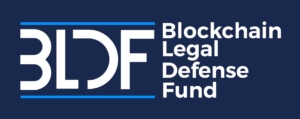In a sweeping international operation led by the U.S. Treasury and law enforcement agencies in Germany and Finland, the Russian-based crypto exchange Garantex has been dismantled, and its operators charged with sanctions violations and money laundering.
The exchange, which previously operated from Moscow and later moved its servers to other regions of Eastern Europe, had been sanctioned by the U.S. Office of Foreign Assets Control (OFAC) since 2022 for facilitating transactions tied to ransomware groups, darknet markets, and sanctioned Russian entities. According to the latest DOJ statement, Garantex processed over $100 million in illicit transactions, including activity linked to Hydra Market and pro-Russian militia groups.
This takedown is part of a broader trend of international enforcement coordination around crypto-related financial crimes. U.S. agencies worked with European counterparts to physically seize servers, freeze crypto wallets, and file indictments against individuals associated with the platform’s operation.
The case illustrates how sanctioned entities and cybercriminal networks have increasingly turned to smaller, less-regulated exchanges to move funds. Garantex was favored for its lax KYC policies and connections with regional banking networks that allowed crypto-fiat conversion without scrutiny.
Notably, the crackdown has not only targeted the platform but also several front companies and crypto service providers that helped Garantex circumvent sanctions. This includes infrastructure facilitators, over-the-counter brokers, and domain registrars—all of whom may face civil and criminal penalties.
The operation raises new questions about the accountability of offshore exchanges and service providers who claim neutrality while operating in high-risk jurisdictions. It also underscores the need for crypto platforms to maintain real-time sanction screening, report suspicious activity, and comply with both local and international law.
For legal teams advising crypto clients, this case sends a strong message: if your platform enables sanctioned activity, knowingly or not, you could be held liable. It’s no longer enough to say that users control their wallets or that transactions are decentralized. Regulators are using expanded definitions of facilitation and indirect benefit to pursue platforms that serve as conduits for bad actors.
This enforcement action is also part of OFAC’s evolving strategy. Rather than just naming and shaming bad actors, the agency is now proactively dismantling infrastructure and working with foreign governments to ensure compliance across borders. This multilateral approach may soon become the norm.
For crypto platforms operating in gray zones or unregulated jurisdictions, the time to act is now. Implementing strong compliance frameworks, monitoring wallet activity, and running regular legal audits could mean the difference between growth and criminal exposure.
The Garantex takedown reinforces a critical reality: sanctions enforcement doesn’t stop at borders, and in the crypto world, jurisdiction follows the chain.












